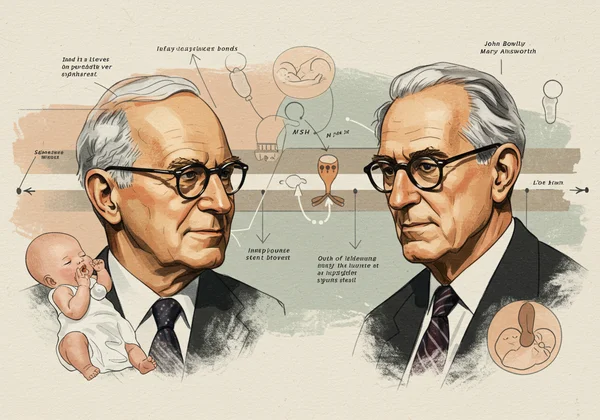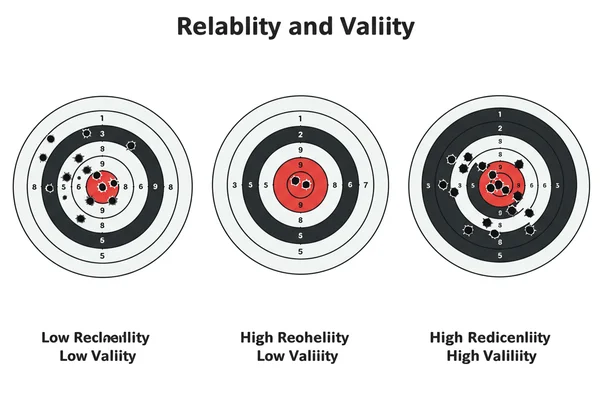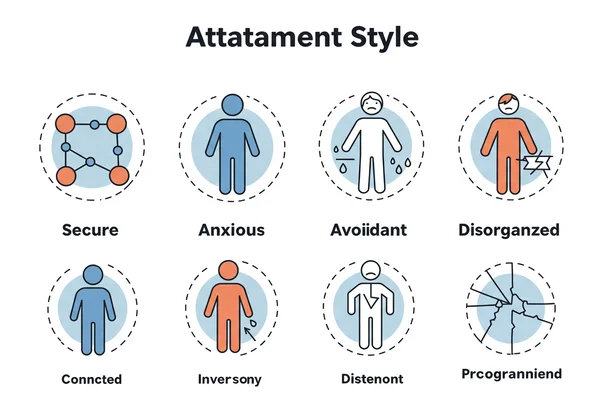Attachment Style Quiz Accuracy: Science & Reliability Explained
July 27, 2025 | By Sophia Caldwell
Have you ever taken an online attachment style quiz and wondered about its credibility? You're in good company. In a world full of self-discovery tools, it's natural to question their scientific basis. Are attachment style quizzes accurate? This question is a crucial one, as understanding our relationship patterns is the first step toward building healthier, more fulfilling connections.
This article will pull back the curtain on the science behind these insightful tests. We'll explore their psychological foundations, discuss their reliability, and show you how to interpret your results responsibly. This isn't just about getting a label; it's about gaining a powerful tool for self-awareness. Ready to start this journey? You can discover your style with our free, science-based quiz.
The Science Behind Attachment Style Quizzes
Many people are surprised to learn that a well-designed attachment style test isn't just a random set of questions. These tools are rooted in decades of profound psychological research that has shaped our understanding of human bonding. They are carefully constructed to offer meaningful insights into the subconscious patterns that govern our closest relationships.
Roots in Attachment Theory: Bowlby and Ainsworth
The foundation of any credible relationship attachment style quiz is attachment theory, pioneered by British psychologist John Bowlby and later expanded by American-Canadian psychologist Mary Ainsworth. Bowlby's groundbreaking work in the mid-20th century proposed that the early bond between an infant and their primary caregiver creates an internal "working model" for all future relationships. This model influences how we perceive intimacy, express our needs, and handle conflict.
Ainsworth's "Strange Situation" experiment provided empirical evidence for Bowlby's theory, identifying distinct attachment patterns in children that were later found to persist into adulthood. These are the secure, anxious, and avoidant styles you see in quiz results today. Therefore, when you answer questions about your feelings toward closeness or independence, you are tapping into these deeply ingrained psychological frameworks established by attachment theory founders.

How Quizzes are Designed: Psychometric Principles
Creating a reliable quiz involves more than just understanding the theory; it requires applying psychometric principles. This field of psychology focuses on the theory and technique of psychological measurement. A good quiz is developed through a process of test construction where questions (or items) are written, tested, and refined to ensure they accurately measure the intended concepts.
These questions are designed to assess two key dimensions: anxiety over abandonment and avoidance of intimacy. Your responses are scored along these dimensions to determine where you fall on the attachment spectrum. The goal is to provide a snapshot of your relational tendencies, offering a starting point for deeper self-reflection and understanding. The a detailed attachment style quiz uses these principles to offer a nuanced perspective.

How Accurate Are Online Attachment Style Quizzes?
This is the central question for anyone seeking a reliable attachment test. The short answer is that a well-constructed quiz based on established psychological theory can be highly accurate in identifying your dominant attachment patterns. However, it's essential to understand what "accurate" means in this context and to be aware of the inherent limitations of any self-report tool.
Understanding Reliability vs. Validity in Assessments
To appreciate a quiz's accuracy, we need to look at two key concepts: reliability and validity. Think of it like a bathroom scale.
- Reliability refers to consistency. If you step on the scale three times in a row and get wildly different numbers, it's not reliable. Similarly, a quiz's reliability means it should produce similar results if taken under similar conditions.
- Validity refers to accuracy. Does the scale actually measure your weight correctly? For a quiz, test validity means it truly measures what it claims to measure—in this case, attachment styles.
Quizzes like ours are built upon decades of validated academic research, giving them a strong foundation in both reliability and validity. They are designed to accurately reflect the patterns that consistently show up in your relationships.

Factors Influencing Quiz Results and Their Limitations
While valuable, it’s crucial to acknowledge the quiz limitations. Because they are self-report measures, their accuracy can be influenced by several factors. Your mood, recent arguments, or even your desire to see yourself in a certain light can subtly sway your answers. This is known as self-report bias.
Furthermore, your attachment style isn't always rigid. You might feel more secure with your family but more anxious in romantic relationships. A comprehensive 4 attachment styles quiz will capture your primary tendency, but remember that context matters. The best approach is to answer the questions based on how you feel most of the time in your significant relationships.
Interpreting Your Attachment Style Quiz Results Responsibly
Receiving your results is not the end of the journey; it's the beginning. The real power of interpreting attachment results lies in how you use this newfound information. It's not about boxing yourself in with a label but about opening a door to greater self-compassion and deliberate growth.
It's a Guide, Not a Definitive Diagnosis
First and foremost, remember that your result is a guide, not a diagnosis. An attachment style quiz is an educational tool designed for self-exploration. It provides a framework for understanding your relational habits, but it cannot and should not replace a professional evaluation by a therapist or psychologist.
Your attachment style exists on a spectrum. You might be primarily one style but have traits of another. Viewing your results through the lens of the attachment style spectrum can prevent you from feeling trapped by a label and instead empower you to see areas of strength and opportunities for development.
Beyond the Labels: Leveraging Insights for Personal Growth
The most significant benefit of understanding your attachment style is using that knowledge for personal growth attachment. Once you know your patterns, you can begin to understand why you react the way you do in relationships. Anxious? You can learn to self-soothe and communicate your needs more directly. Avoidant? You can practice leaning into intimacy in small, safe steps.
This is where the real work of improving relationships begins. Our free attachment style quiz provides you with a foundational understanding. For those seeking a clearer path forward, our optional AI-powered report offers personalized insights and actionable steps tailored to your unique results, helping you transform awareness into meaningful change. Why not get your insights today?
Making the Most of Your Attachment Style Journey
How you use the insights from an attachment style quiz truly determines its value. When built on solid psychological science, these quizzes are remarkably effective tools for kickstarting a journey of self-discovery. They provide a common language to understand complex emotional patterns and offer a clear, accessible starting point for anyone looking to improve their connections with others.
They aren't crystal balls, but they are powerful mirrors, reflecting tendencies that may have been invisible to you before. By embracing the insights with an open and curious mind, you can take control of your relational health and move toward a more secure way of connecting. The first step is simple and enlightening. Take the free attachment style quiz now to unlock a deeper understanding of yourself.
Resource Center
Are attachment style quizzes accurate?
A well-designed attachment style quiz based on established psychological research is generally accurate at identifying your predominant relational patterns. Its accuracy depends on its scientific foundation and the honesty of your responses. Treat it as a highly reliable guide for self-reflection, not a rigid clinical diagnosis. The attachment style quiz free on our site is designed to provide you with a trustworthy starting point.
What are the 4 types of attachment styles?
The four main attachment styles are:
-
Secure: Comfortable with intimacy and autonomy; trusting and empathetic.
-
Anxious (or Preoccupied): Craves closeness and fears abandonment; often worried about their relationships.
-
Avoidant (or Dismissive): Highly independent and uncomfortable with closeness; tends to suppress emotions.
-
Disorganized (or Fearful-Avoidant): A mix of anxious and avoidant traits; desires intimacy but is afraid of getting hurt.

Can I be both anxious and avoidant?
Yes, it is possible to experience a mix of anxious and avoidant tendencies. This is often characteristic of the disorganized attachment style, also known as fearful-avoidant. Someone with this style simultaneously desires and fears intimacy, leading to confusing and often chaotic relationship patterns. A nuanced love attachment style quiz can help you explore these complexities and understand how they show up in your life.